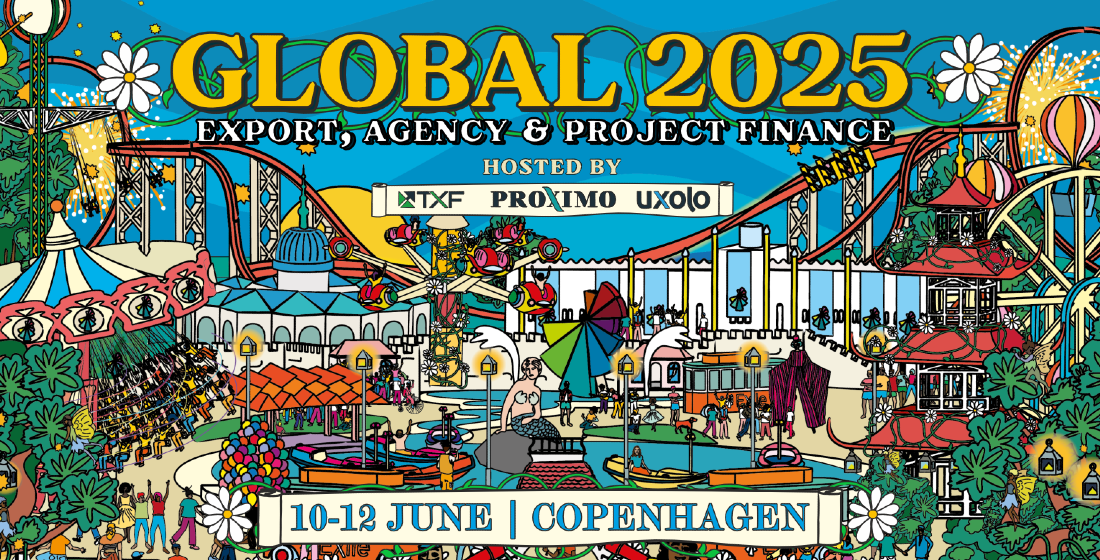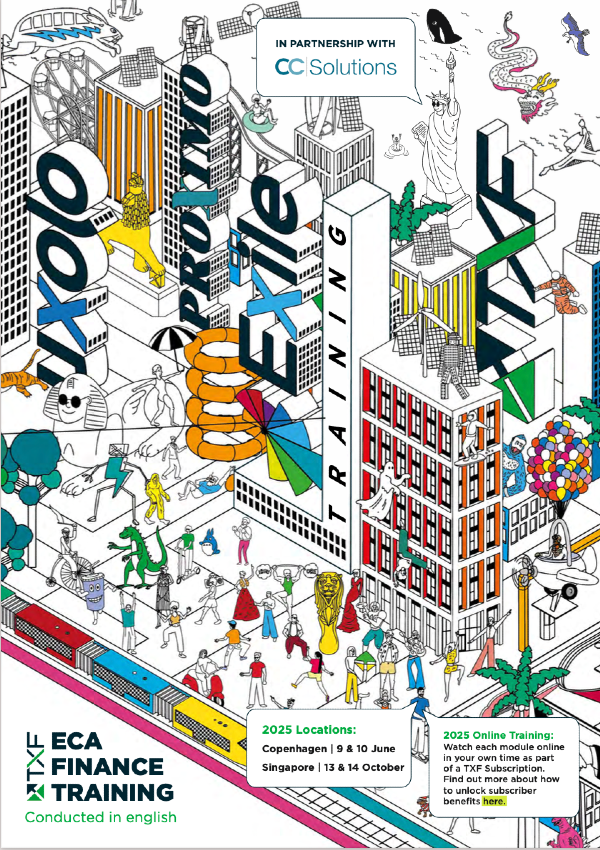ESG-linked commodity debt: Real enough to change perceptions?
ESG-linked debt in the commodity sector has another convert – Mercon. And ESG transparency is arguably a new first mover advantage in commodity trading. But do ESG-linked deals have the transparency and auditing processes to offset public and buyer suspicion caused by centuries of commodity trading opaqueness?

Disgusted at a UK high street bank’s actions in South Africa in the days of apartheid, my father once closed a business account by writing a cheque in indelible black marker pen on a paving stone. The local branch was forced to accept the concrete slab and to provide the funds in cash – at the time a considerable sum for a small high-street bank – whilst he popped next door to a building society to open a new account. Astonishingly, he still received an RSVP invite to the bank’s Christmas party for local businesses – he responded with a penned bathroom tile out of politeness.
The point of this story? Simply an illustration of how badly big business can be at reading the non-profit drivers of its customer base – something that the major commodity houses, renowned for their opaqueness and flouting of ESG principles, are becoming increasingly aware of and beginning to react to.
Mercon recently joined the small but growing list of commodity houses raising ESG-linked debt. The Netherlands-based coffee trader, one of the world's largest buyers and sellers of green coffee, closed a $450 million two-year secured revolving credit facility – the first of its kind in the coffee sector, and the first for a coffee business in the US.
Lead arranged by Rabobank, the facility will be used to fund sustainability initiatives via the borrower’s LIFT programme – a scheme developed and implemented for Mercon’s supply chains in Nicaragua, Guatemala, Honduras, Brazil and Vietnam that provides training and technical support to coffee farmers in farm business management, agricultural practices, socio-environmental practices, climate-smart agriculture, Rainforest Alliance standards compliance, and access to capital and risk-management tools.
According to a company spokesperson, Mercon “long ago started the journey to frame its material issues based on the ISO26000 and to address the areas of risks and opportunities as part of its business strategy. In addition, we are also continuously improving our ESG performance based on the IFC framework and adhere to the IFC Green Loan Framework.
“This specific facility is linked to ESG targets of our supply chains and has a sustainability incentive based on achievements of specific annual KPIs. This is a revolving credit facility to fund short-term working capital needs for the Mercon Group. If the Group delivers on certain sustainability performance indicators, there is an interest rate deduction as an incentive.”
The growing popularity with commodity trading houses of ESG-linked debt – Ecom Agroindustrial, Gunvor, Olam and Wilmar have also all signed major deals over the past 12 months – is good news given the sector often attracts the wrong kind of ESG publicity. And the benefits go beyond PR, with cost of debt generally said to tighten between 5%-10% of the margin if KPIs are met.
But is there an element of greenwash to this trend? For example, in 2017, cocoa/chocolate producer and trader Barry Callebaut, accused of illegally purchasing cocoa from protected parks in the Ivory Coast, linked one of its credit facilities to sustainability rankings. And Wilmar, an ESG-linked debt pioneer, still supplies around 40% of global palm oil, a sector that attracts as much, if not more criticism from environmental groups as fossil fuels.
There is certainly a PR element to ESG-linked debt – traders are becoming acutely aware that their major buyers’ investors are more ESG-aware and are applying shareholder pressure on those buyers with increasing bite.
But does the PR element matter if the outcome is real progress? No. For example, Wilmar, is stepping up efforts to combat deforestation and peatland destruction throughout its supply chain via its NDPE programme and has put in place a monitoring plan to ensure a deforestation-free palm oil supply chain from 2020 onward. These types of initiative require funding and ESG-linked debt gives a pricing benefit that should catalyse more traders into similar action.
But traders do need to do more to make the green credentials of ESG-linked facilities more certain. At present there are two methods of policing KPI adherence on these deals: either by using an independent sustainability rating company – Sustainalytics for example – or self-monitoring. Mercon, Olam and Wilmar use the former; Gunvor and ECOM, the latter.
The independent agency route is clearly the more credible, but is it enough? In a recent article researched by TXF, not a single lender or agency could be found that performs physical due diligence on ESG-linked deals – a significant shortcoming considering the opaqueness of the global commodities market.
Blockchain is being touted as a partial potential solution to the credibility gap, and blockchain-based commodity trading platforms are under development – Komgo and Forcefield for example. But these are basically supply chain finance developments and will do little to enhance ESG-linked credibility.
The reality is that ESG credibility in the commodities sector is just one piece of the wider transparency debate being spearheaded by the Extractive Industries Transparency Initiative (EITI). The EITI has had some success and has engaged with some of the major traders – Glencore, Trafigura and Gunvor for example. But even the most open from that list have the transparency of fog.
The longstanding argument for commodity trading opaqueness – first mover advantage – largely died with the advent of the internet. Ironically, the new first mover advantage, at least in terms of cost of borrowing and customer loyalty, is ESG transparency. But self-policed ESG-linked deals have too little credibility going forward – future deals must be transparent, independently audited and be seen to generate penalties when KPIs are not met, if the commodities trading sector is to have any real ESG credibility.
Now time to get up to speed on the markets.
Here's our exclusive TXF Essentials subscriber content
Van Phong 1: A (super)-critical judgement on Japan
JBIC has claimed Sumitomo Corporation’s ECA-backed loan to finance the $2.8 billion Van Phong 1 coal-fired power project in Vietnam is its last loan for a ‘dirty’ power scheme using supercritical technology. But is this legacy deal the last such coal power project in the Japanese ECA's pipeline?
Norwegian agencies step-up to support reborn shipbuilding sector
As the shipbuilding industry in Norway transitions, so the government support appears well-placed to back new developments. However, in the case of finance for a krill-fishing vessel just how sustainable is this backing from the agencies?
US fibre plays catch-up with Europe
US state and federal governments are starting to get serious about encouraging digital infrastructure development. But investors familiar with European fibre-to-the-home face a very different US market structure and risk-reward balance.
Plus, to top things off...the news you thought you had but didn't
Russia's Sovcomflot signs LNG carrier financing
Sovcomflot, Russia’s state-owned shipping company, has signed a 10-year $297 million limited recourse loan to fund the pre- and post-delivery financing of two new-build Atlanticmax LNG carriers.
Challenger signs deal for Oikos Storage sale in UK
ASX-listed investment management firm Challenger signed a sales agreement today (13 May) for 100% of its UK refined petroleum products terminal assets Oikos Storage, after final bids were submitted for the operator of bulk liquids at the end of last week.
EMF sounds out banks for French offshore wind farm
EMF – a joint venture between EDF and Enbridge - is sounding out banks to finance the construction of the 450MW Courseulles-sur-Mer offshore wind farm in France.
Ukraine ports PPP concessions to be tendered in June
The Ukraine government is to launch tenders for the Olvia and Kherson ports PPP concessions by June.
Finerge refinancing closed
First State Investments has closed the €800 million refinancing of the outstanding stapled debt of its Portuguese renewables company Finerge.
Port Kembla LNG terminal FID nears
Sponsors of the $250 million ($176 million) Port Kembla gas terminal (PKGT) project in Australia – Squadron Energy, Marubeni Corporation, and JERA (a JV between Tokyo Electric and Chubu Electric) – are expected to make a final investment decision (FID) on the funds backing the scheme around the middle of 2019.
Euroports acquisition debt launched
Pricing guidance was issued earlier in the week on the €490 million ($549 million) debt backing the Euroports acquisition by a consortium comprising R-Logitech, and state-owned investors PMV and FPIM. Rated BB-/Ba3, Euroports operates shipping terminals in Antwerp, Ghent and Rostock.
PLN nears mandates for Lumpung power project
Indonesia’s state-owned electricity utility PLN is expected to mandate EPC contractors and lenders by the end of next month for its 200MW Lumpung gas-fired power project in Indonesia.
Pertamina expects bank mandates Q3 for Balikpapan refinery
State-owned oil and gas company Pertamina is expected to mandate banks in Q3 for its $5 billion Balikpapan refinery expansion in East Kalimantan, Indonesia.
ACWA bags first PIF renewables partnership
Saudi Arabia’s Public Investment Fund (PIF) has appointed ACWA Power – in which PIF announced it was going to increase its stake from 25% to 40% in February – as its partner for the first 2GW phase of its chunk of the country’s renewables programme: PIF and the Renewable Energy Project Development Office (REPDO) are expected to procure a highly ambitious 58.7GWs of renewables by 2030 on a 70/30 respective split. REPDO will be procuring via competitive tender and PIF via bilateral partnerships with developers.
Sharjah Hamriyah Independent Power reaches financial close
Project sponsors GE and Sumitomo have reached financial close on the $1.13 billion ECA-backed loan backing project company Sharjah Hamriyah Independent Power’s 1800MW gas-fired IPP in Sharjah, UAE.
BAPCO reaches full financial close
State-run Bahrain Petroleum Company (Bapco) has reached full financial close on a 16-year $4.1 billion ECA-backed financing for the expansion of the Sitra oil refinery.
Facility D IWPP expansion progresses
The water purchase agreement (WPA) for the Umm al Houl Facility D IWPP expansion project in Qatar has been signed with Kahramaa. Mitsubishi and Tepco are lead sponsors on the $2.5 billion 2400MW/130mgd Facility D IWPP. The expansion project will add 200mgd to the plant’s capacity.





